I Game and I Vote
Before Aussies vote in the federal election for 2010, GameSpot AU guides you through four election-worthy topics for gamers.
Attention Aussie gamers! The 2010 federal election is just around the corner, and while the mainstream media may think it's covering all the big issues, it's neglecting one very important topic: which major political party has the best policies for gamers? In this GameSpot AU feature, we check in with the Labor Party, the Coalition, and the Greens to gauge their views on four important gaming-related issues in an effort to help you decide who will get your vote on August 21. We're also going to help you make your voice heard, with an e-mail form that you can send directly to your current Federal member letting that member know you're a gamer and you're an important part of the political spectrum. So read on to find out each party's views, and then head on over to our automated form to send your letter and get politically involved!
It’s a tough job convincing politicians to change their minds, but Aussie gamers have done it. Issues like R18+ for games are now on the political agenda thanks to the efforts of the local gaming community, who have worked together with industry bodies like the Interactive Games and Entertainment Association (iGEA) and the Game Developers Association of Australia (GDAA) to make their voice heard.
But the fight is not over just yet. A federal election is just around the corner, which means gamers must work harder, faster, and more united than ever before to put the issues that matter to them in the public forum. Things move quickly in politics: what’s important today will be forgotten tomorrow. Policy makers must not forget how important gamers are to the cultural landscape of Australia. Gamers have to engage them in debate and remind them of what will matter to them most come polling day.
In this feature, GameSpot AU has highlighted four key issues for Aussie gamers: the fight for an R18+ classification, low broadband speeds, the threat of the proposed Internet filter, and the struggling Australian video game development industry. We handpicked ministers from each of the three major political parties--Labor, Liberals, and the Greens--and asked them what specific pledges they can make in regard to these four issues ahead of the election. All this is designed to help you make an informed decision on who gets your vote.
At the end of this feature you will find a letter template outlining each of the four issues. This letter is meant for your local member. Complete the blank fields, and follow the instructions to send the letter on. Local members are required to reply, so this is the best way to ensure that these issues are flagged. Remember, a collective voice is the best way to make sure that what gamers have achieved so far does not go to waste. Ultimately, it's you who must make sure this all counts for something. It’s the only way forward.
THE ISSUE: R18+ for games in Australia
Australia remains one of the only countries in the Western world without an adult classification for video games. This means that any video game rated above an MA15+ rating by the Classification Board of Australia, the industry body that rates all material and content in Australia, is refused classification (RC) and effectively banned for sale locally.
In order for the R18+ classification to be introduced, all state, territory, and federal attorneys-general must unanimously agree to its introduction. To date, this has not happened. A public consultation into the issue was released in December 2009 and closed in February 2010. A preliminary report into the results of the consultation showed that 98.2 percent were in favour of introducing R18+ for games. The Federal Home Affairs department is currently reviewing the consultation. According to Federal Home Affairs Minister Brendan O'Connor, classification ministers have requested further analysis of community and expert views before a final decision on R18+ for games can be made.
Below are the classification questions we posed to the respective Labor, Liberal, and Greens ministers. Their responses follow.
Do you support the introduction of an R18+ rating? Why/why not?
Will you be making mention of this issue throughout the upcoming election? If so, how?
What will happen to this issue should you win government? Will you advocate for change or do you see it as something that is not of particular importance when considering the big picture?
Minister for Home Affairs, Brendan O’Connor:
"This is a matter for classification ministers and an agreement must be reached that satisfies all states and territory governments before changes can be made to that nation's classification system. The strength of arguments on both sides must be considered. What is needed is the right decision, not a rushed decision.
"At their meeting on 7 May 2010, the Standing Committee of Attorneys-General released a status report on the consultations. The report shows that about 60,000 submissions were received and that approximately 98 percent supported the introduction of an R18+ classification.
"That report showed polarised views for and against an R18+ classification. Classification ministers agreed at that meeting that further work needs to be done before a decision can be made, including ascertaining the views of the silent majority. It is not just the weight of numbers that need to be considered. It is also the strength of arguments on each side. Ministers are aware of the support for the proposal shown by the number of submissions received. However, they are also aware of the wide range of views on this issue in the community.
"Ministers have made a commitment to discuss the issue at a future meeting and have requested further analysis of community and expert views to better understand the arguments on each side."
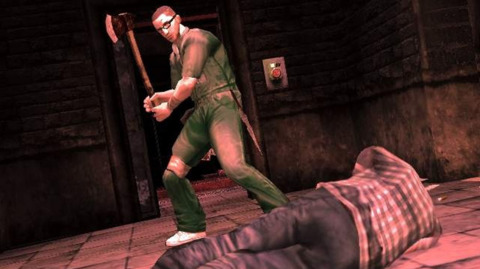
Shadow Minister for Tourism, the Arts, Youth and Sport, Steven Ciobo:
"Earlier this year, the federal government concluded a consultation period following the release of a discussion paper on the inclusion of R18+ games in the National Classification Scheme. The government has committed to providing the Coalition with a copy of the submissions received as part of this consultation period.
"On behalf of the Coalition, as the shadow minister for the arts, I received a formal briefing from departmental officials from the Attorney-General's Department following the release of the discussion paper.
"It is important to note that a change to the National Classification Scheme requires unanimous agreement among Australia's censorship ministers. Any change to the National Classification Scheme must now be considered in the context of the feedback the government received as part of the consultation period.
"The Coalition is committed to engaging with all Australians on this issue throughout the election campaign."
Australian Greens Senator for Western Australia, Scott Ludlam:
"The Greens support the introduction of an R18+ classification for video games in Australia. We believe that it is time to change the system. It is bizarre that Australia is one of the only countries in the Western world without an adult classification for games. We believe that a change to the classification system should occur in the next term in parliament.
"The Greens will continue to support a campaign for R18+ for games. We also believe that the games industry and gamers have done a really good job of highlighting the issue and putting it on political agenda. We're going to play our part in parliament and the community to make sure people know about the issue. We plan to raise this issue during our upcoming federal election campaign and make sure it is part of the debate." Click on the Next Page link to see the rest of the feature!
THE ISSUE: Faster broadband speeds
Australia's national broadband network is one of the slowest and most expensive globally. A recent report comparing the Internet speeds and costs of the top 30 nations in the Information Technology and Innovation Foundation (ITIF) Broadband Rankings shows that Japan, Korea, Finland, Sweden, and France are leading the pack, with average broadband speeds of 61 megabits per second (Japan), 46 megabits per second (Korea), and 22 megabits per second (Finland).
Australia ranks fourth to last at number 26, with an average broadband speed of around 1 megabit per second.
To gamers, broadband access is a critical component of the gaming experience. Having a fast, reliable, and cheap connection in Australia will mean that things like online multiplayer matches and downloadable content will no longer be a headache for gamers.
In April 2007 the Australian government announced that it would establish and build a new high-speed national broadband network. The latest government estimates, released earlier this month, predict that the newly named National Broadband Network will take up to eight years to be fully rolled out. The government plans to spend up to A$43 billion in total to make Australia's Internet up to 100 times faster, aiming to deliver speeds of 100 megabits per second.
Below are the national broadband questions we posed to the respective Labor, Liberal, and Greens ministers. Their responses follow.
Do you recognise that slow broadband is a big problem for Australians?
If elected, what specific pledges can you make regarding:
Increases in average speeds for both urban and regional Australians
Increased accessibility in both urban and regional areas
Lowering broadband costs for the average Australian
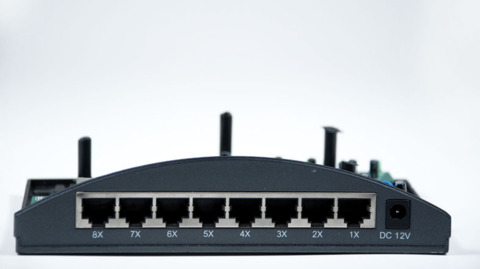
Minister for Broadband, Communications and the Digital Economy, Stephen Conroy:
"Australians have had to put up with expensive and slow broadband for too long. That is why the Australian Government is delivering the National Broadband Network (NBN).
"The NBN is the largest nation-building project in Australia's history and will lift Australia to the top of world rankings in broadband access. It will drive major productivity and growth opportunities and ensure our children get the best education in the world.
"The NBN will deliver high-speed broadband to all premises in Australia, no matter where they are located. Every home, business, school, and hospital will be included and no one will miss out. Under the NBN, 90 percent of premises will be connected with fibre-to-the-premises technology providing speeds of 100Mbps. The 10 percent of Australians who live outside the footprint will receive faster and cheaper broadband from the next generation of satellite and wireless technology. These services will deliver on and exceed the Rudd Government’s election commitment.
"The NBN is not a quick fix for an election: it is a solution for the long-term benefit of the country, including our rural and regional areas. The first services of the NBN will begin in Tasmania in a couple of weeks."
Shadow Minister for Broadband, Communications and the Digital Economy, Tony Smith:
The Federal Opposition was unable to send us details of their broadband policy before publication. Opposition spokespeople have told GameSpot AU that their official policy on this issue is still to be officially announced but will happen before the conclusion of the 2010 election campaign. We will update this section as soon as they send us policy confirmation. Previously, the Coalition has stated its opposition to the government's proposed National Broadband Network.
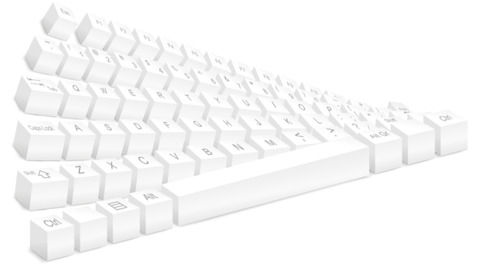
Australian Greens Senator for Western Australia, Scott Ludlam:
"The Greens believe the current government recognises that this is a problem for Australians. They probably didn’t have gamers in mind when they planned the NBN, but it's a big step forward regardless. The fact that Telstra has been brought back into government control will make it easier for competition at retail level: more ISPs in the market means a more dynamic environment for broadband services.
"We think our role going forward should be a government watchdog. A very large portion of taxpayer's money is going into building the NBN, and we think it's our job to make sure that the government is accountable with this money. We are also advocating for the NBN to be rolled out in rural areas of Australia before it makes its way to the capital cities. We think the government is slowly doing this with its announcement of initial testing in Tasmania, but at the same time we are disappointed to see that little attention has been paid to WA.
"We also see it as our job to make sure the NBN rollout process is transparent and will not end up privatised. The reason for high broadband costs in Australia to date has been the fact that Telstra has had a monopoly position, and they charged whatever they liked. We think it's important to have the NBN in the public's hands.
"If the Opposition wins power after the election, we believe the NBN will be scrapped. The Greens and the Labor Party have both worked hard to reach this point. The final hurdle will be the privatisation issue: the Greens are proposing that before a move is made to privatise the NBN, a public interest test and a vote in parliament should be carried out." Click on the Next Page link to see the rest of the feature!
THE ISSUE: Mandatory Internet filter
In 2008 the Australian government proposed a mandatory Internet filter that would force Australian Internet Service Providers (ISPs) to block access to Web sites that include content which has been rated "Refused Classification" (RC) by the Australian Classification Board. The Australian Communications and Media Authority will maintain a "blacklist" of URLs that will be blocked by the filter.
Late last year the government announced that the policy would not apply to video games until the minister for Home Affairs has completed the consultation process into whether Australia should have an R18+ classification for video games.
A recent survey of 1,000 Australians found that 80 percent support the introduction of the filter. At this point, legislation to introduce the mandatory Internet filter has not yet been drafted. Earlier this month, the Minister for Broadband, Communications and the Digital Economy, Stephen Conroy announced a number of modifications to the filter policy, including a delay of at least a year while the government reviews the RC category of content, which the filter would block.
Below are the questions we posed to the respective Labor, Liberal, and Greens ministers about the proposed mandatory Internet filter. Their responses follow.
Please outline your position on the introduction of the mandatory Internet filter.
Do you believe it is necessary? If so, why?
Why do you believe the Australian people have responded so negatively towards this?
What can you say to those whose online gaming experiences will be affected negatively by the filter when it is introduced?
If elected, will you support or block plans for a mandatory Internet filter?
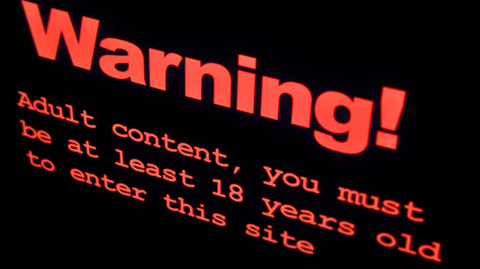
Minister for Broadband, Communications and the Digital Economy, Stephen Conroy:
"The government does not support RC content being available on the Internet. This content includes child sexual abuse imagery, bestiality, sexual violence, detailed instruction in crime, violence or drug use, and/or material that advocates the doing of a terrorist act.
"Under Australia's existing classification regulations, this material is not available in news agencies, it is not on library shelves, and you cannot watch it on a DVD or at the cinema or on television. RC material is not available on Australian hosted Web sites.
"The Australian government has a comprehensive A$125.8 million Cyber Safety policy, which includes education, law enforcement, research, and ISP level filtering. Whilst most of the media coverage focuses on the ISP filtering component, there is far more to our policy than this, including providing A$49 million for 91 new police officers to the Australian Police Force Child Protection Unit to continue their work in surveillance and uncovering people who groom children through chat rooms, or distribute child sexual abuse content; providing additional funding to the Commonwealth Director of Public Prosecutions to pursue legal proceedings against these offenders; funding numerous education activities through the Australian Communications and Media Authority outreach program; and funding research into cyber-bullying and other aspects of cyber-safety to ensure we can take an evidence-based approach to the issues.
"In relation to ISP filtering, there are two components: mandatory filtering of Refused Classification material (because this is content that the government believes has no place in a civilised society), and providing a grants program to encourage ISPs to offer wider levels of filtering on an optional basis to those families who wish to receive such a service.
"The policy does not apply to X18+ material and will not block any material that is not RC. The government's proposal will bring the treatment of overseas hosted content into line by requiring ISPs to block overseas content that has been rated RC.
"The government announced on December 15, 2009, that the policy would not apply to video games until the minister for Home Affairs, Brendan O'Connor, has completed the consultation process into whether Australia should have an adult rating for video games."

Shadow Minister for Broadband, Communications and the Digital Economy, Tony Smith:
The Federal Opposition was unable to send us details of their views on the mandatory Internet filter policy before publication. Opposition spokespeople have told GameSpot AU that their official policy on this issue is still to be announced, but will happen before the conclusion of the 2010 election campaign. However, Shadow Treasurer Joe Hockey has told media that the Federal Opposition will scrap plans for an internet filter if it wins the federal election. We will update this section as soon as they send us policy confirmation. Keep checking back with GameSpot AU and this feature for the latest on this topic.
Australian Greens Senator for Western Australia, Scott Ludlam:
"The Greens oppose the introduction of the mandatory Internet filter. If it is ever brought up in parliament, we will vote against it.
"What we have found is that the more people know about the filter, the more likely they are to oppose it. It's all in how you ask the question. If you ask "Do you think we should block child pornography?" then most people will say yes. However, if you explain the government's filter proposal, then people realise that it will not work in blocking the kind of material the government wants to block.
"The government is already a year behind schedule with the filter; they’ve even taken it off the table during the election because it's so toxic. To their credit, this idea of a 12-month review of the RC category is a good idea. They should look closely at how classification works in Australia, including how video games are classified. This will also give ISPs space to introduce a voluntary scheme, and will also buy the Cyber Safety committee time to finish their work and come up with alternatives on online literacy.
"The Labor Government will still introduce the filter if they win the upcoming federal election. However, it is up to the Coalition; if they choose to block the legislation in parliament, it will not pass.
"If the Greens were in power, we'd use our influence in the Senate and in the community to come up with some better ideas. We are interested to move towards alternatives to the filter. The broad outlines of what we need are clear: home-based and school-based filtering, voluntary filtering and more resources for law enforcement and research into what the real hazards for children are." Will these four issues affect the way you vote? Let us know by leaving your comments below!
THE ISSUE: More government support for Australian video game development
It’s no secret that the Australian video game development industry has seen better days. It has been plagued by continual job cuts, studio closures, and a massive loss of revenue in the past two years, and only a generous helping hand from the Australian government can put it back on its feet again. The Game Developers Association of Australia (GDAA)--the industry body that represents Aussie game development houses--has been campaigning for government help since 2007, asking for the same 40 percent tax rebate that the government extended to the film development industry in the 2007 federal budget. The GDAA says this support will result in an additional A$25 million in new investment into Australian-developed games, something that the local industry desperately needs to survive. The rebate would also enable Aussie developers to reduce development costs, something that could help attract more international publishers and inject new life into the local industry.
In 2010, the GDAA has changed tack in approaching the government for help. With the help of Screen Australia--the body that looks after the local film development industry--the GDAA has begun working together with the Minister for Environment Protection, Heritage and the Arts, Peter Garrett, to seek more support for game developers. This year Garrett announced a review of the Independent Screen Production Sector, promising to look at the issues raised by the GDAA. The GDAA and Screen Australia have both put in separate review applications to Garrett’s department, calling for a hybrid model of the original tax offset specifically for the games sector. The review process will continue after the election.
The government has good reason to invest in local video game developers. According to independent market research group Gfk, the Australian game industry cracked the A$2 billion revenue mark last year, growing by 112 percent since 2006. The GDAA reports that there are now more than 50 game development companies in the country, with more than 200 titles developed locally. If the government introduces the rebate scheme for games development, we could very well see these numbers doubling in a very short period of time.
Below are the game development support questions we posed to the respective Labor, Liberal, and Greens ministers. Their responses follow.
What is your official stance on helping the game development industry and introducing the same rebate as the film industry or other tax breaks?
Why do you think this support has not yet come from the government?
Do you think it is important to nurture video game development talent in Australia, given that the local games industry made over A$2 billion last year?
In what ways will you support the Australian video game development industry should you win government?

Minister for Environment Protection, Heritage and the Arts, Peter Garrett:
"Our department met with representatives of GDAA on two recent occasions, in February 2009 and April 2010, to exchange information about issues identified by the GDAA and relevant initiatives of the Australian Government.
"The minister for Broadband, Communications and the Digital Economy, Stephen Conroy, convened a Digital Games Industry Roundtable in October 2008 involving local and international companies, industry associations and relevant government agencies to examine ways to enhance the contribution of the games industry to the economy. The government is committed to supporting Australia's creative industries, including software development and interactive content. Australia's creative industries are an important sector of our economy contributing A$31.1 billion in industry gross product in 2007-08.
"The government has dedicated new funding of A$17 million over four years to establish the Creative Industries Innovation Centre under the Enterprise Connect program to support the productivity of our creative businesses, including eligible games companies.
"The government is currently progressing new legislation to enhance the Research and Development Tax Credit. We are also undertaking a Review of the Independent Screen Production Sector and will consider issues related to the screen industry raised as part of that review, including those related to the operation of tax incentives and the issues raised by the GDAA.
The review will report to the minister by the end of 2010."
Shadow Minister for Tourism, the Arts, Youth and Sport, Steven Ciobo:
"The Coalition recognises the importance of Australia's dynamic game development industry. Our video game industry has shown tremendous growth with sales increasing 47 percent to A$1.96 billion over 2008. Importantly, the industry employs 1,600 Australians.
"Australia has more than 60 game development companies developing world-class games for Australians and our export markets. More than 90 percent of industry revenues are export revenues.
"Of course, many Australians enjoy playing computer games. I note that 88 percent of Australian households now have a device for playing computer games."
[Editor's note: Steven Ciobo cannot make a further comment in specific regards to his department's plans for the Australian video game development industry or comment on specific department policy until after the election.]
Australian Greens Senator for Western Australia, Scott Ludlam:
"Of all the creative industries in Australia, we believe the video game development industry is one of the most neglected. This is bizarre given that video games now make more money in this country than the box office. Video games are not a well-understood medium, and not a well-represented one in Australia. The politicians who are writing the budgets in Australia are not gamers themselves, and thus they do not understand that gaming has a legitimate place in the Australian cultural landscape.
"The Greens believe that the video game development industry should be entitled to the same 40 percent tax rebate scheme given to the film development industry. We're supportive of the industry. We understand they are still formulating their proposal and we look forward to working with them post election." Click on the Next Page link to see the rest of the feature!
Pls note: Turn off adblockers to get full functionality of automated email form.
Got a news tip or want to contact us directly? Email news@gamespot.com
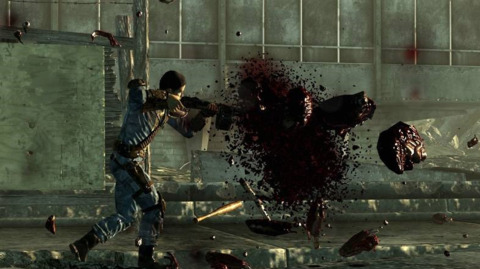
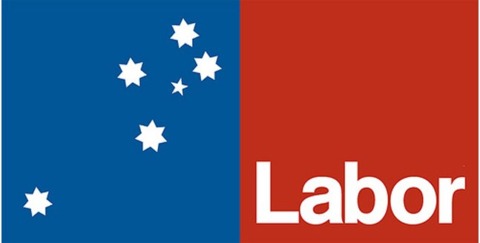
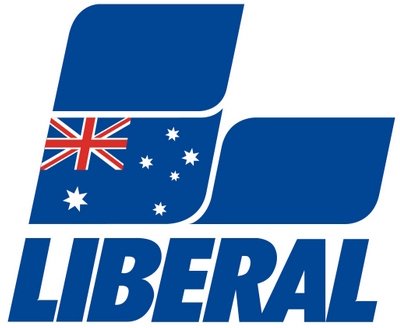
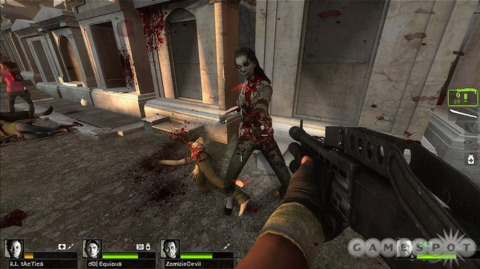

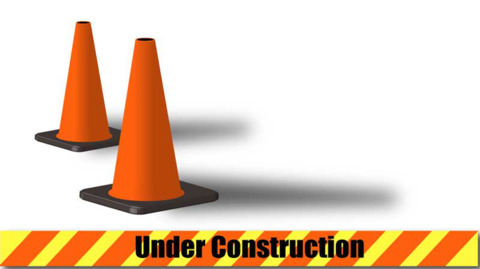
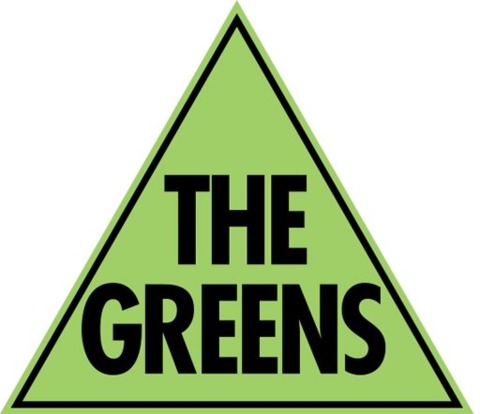
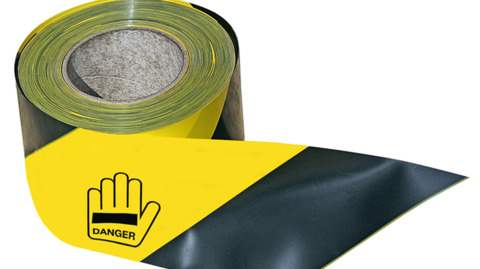
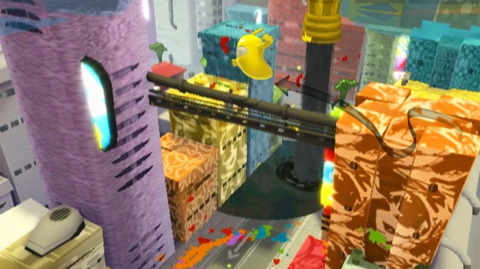
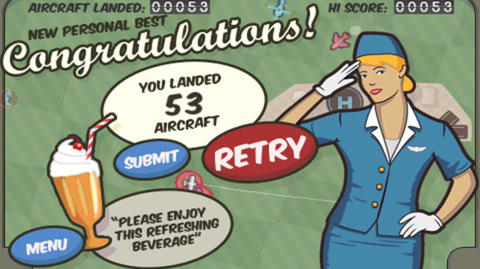
Join the conversation